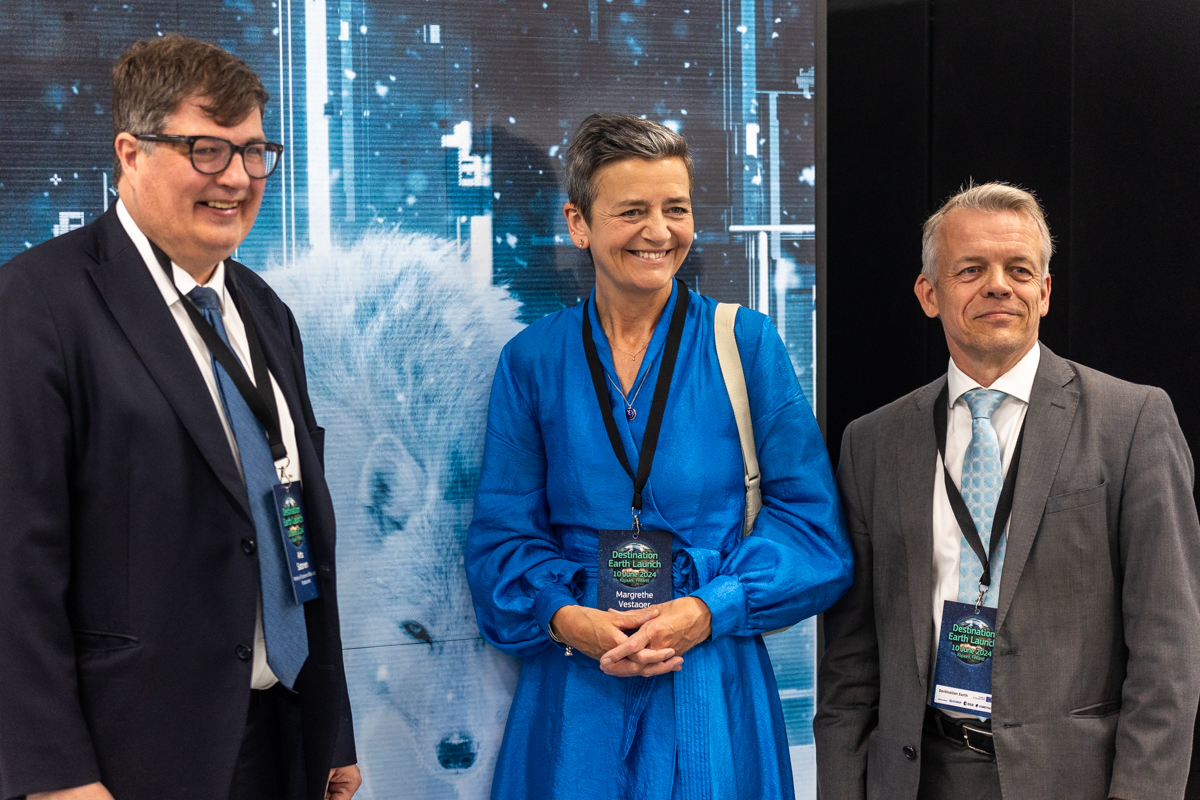Commission launches Destination Earth system in Finland to help climate change adaptation

Press release published by the European Commission
On 10 June 2024, the Commission has activated the initial Destination Earth (DestinE) system in the presence of Executive Vice-President Margrethe Vestager and the Finnish Minister for employment, Arto Satonen. DestinE is a flagship initiative of the Commission, aiming to develop a highly accurate digital twin of the Earth. Deployment of the DestinE system means that the Europe’s High-performance computers (EuroHPC), including the LUMIOne of the EuroHPC pre-exascale supercomputers, hosted and o More supercomputer in Kajaani, Finland, have been tasked to simulate the effects of climate change and extreme weather events. Thanks to this initiative, Europe will be better prepared to respond to major natural disasters, adapt to climate change and assess the potential socioeconomic and policy impacts of such events.
DestinE is using unprecedented modelling capabilities thanks to EuroHPC computers and Artificial IntelligenceArtificial Intelligence is the capacity of an algorithm to a More capacity. The initiative also represents a key component of the European strategy for data by consolidating access to valuable sources of data across Europe. DestinE is now operational and it is expected to continuously evolve, extending operations and developing further components. By 2030, DestinE should complete a full digital replica of the Earth.
The main features of the initial system include:
- DestinE Core ServiceRegular provision of technological capabilities, resources, More Platform, serving users access to its services, tools, and applications;
- Two DestinE Digital Twins – the Digital Twin on Climate Change Adaptation and the Weather-Induced Extremes Digital Twin, offering data at high resolution supporting the analysis and testing of scenarios;
- DestinE DataEarth-system monitoring and prediction system output as prov More Lake providing seamless access to DestinE Digital Twins data and a large number of other data sources, including Copernicus, the EU’s Earth Observation component of the EU’s space programme.
“The launch of the initial Destination Earth (DestinE) is a true game changer in our fight against climate change. DestinE will provide us with a highly accurate twin of the Earth. It means that we can observe environmental challenges which can help us predict future scenarios – like we have never done before. This first phase shows how much we can achieve when Europe puts together its scientific excellence and its massive supercomputing power. Today, the future is literally at our fingertips.”
Margrethe Vestager, Executive Vice-President for a Europe Fit for the Digital Age
Photo credit: CSC